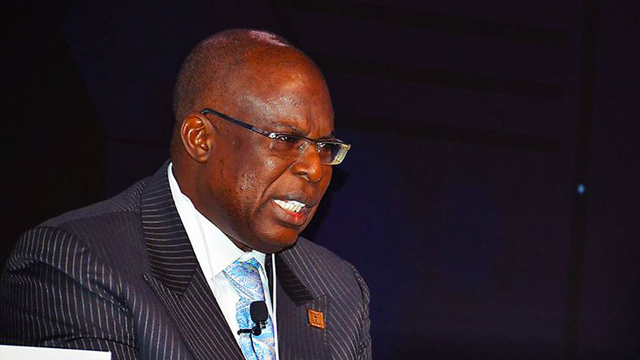
To increase autogas adoption and domestic consumption of the commodity for industrial and everyday use, the Federal Government is developing a backward integration policy that will aid the initial importation of dual fuel engines and domestic manufacturing policy via an executive order effective January 2021.
Under the policy, the Government, through its parastatals, will present their designated vehicles for dual fuel conversion to ramp up gas demand, to encourage local producers and general adoption by Nigerians.
A dual fuel engine operates on a combination of compressed natural gas (CNG) or liquefied petroleum gas (LPG), and diesel/or on 100% diesel.
With a backward integration policy in place, all engines imported or manufactured domestically will have to comply with the dual fuel requirement as it is done in many other countries that have made significant progress in autogas utilization.
With Nigeria’s gas reserves presently at 203.16 trillion cubic feet (tcf), a marginal increase of 1.16tcf from the 202tcf recorded in 2019, the Government has been pushing for its increased utilisation.
Already, the Minister of State for Petroleum Resources, Timipre Sylva, has ordered the chief executives of departments and agencies under his Ministry, to convert all their official vehicles to run on autogas.
Sylva, gave the directive during the Ministerial Mandate Performance Scorecard Review session of his Ministry, with the Permanent Secretary, and CEOs of its agencies.
Since 2019, the Government has been pushing for the usage of CNG and LPG in automobiles to utilise Nigeria’s abundant gas reserves.
He said: “I have surrendered my vehicles to the NGEP (National Gas Expansion Programme) to convert all to dual fuel with use of either auto-LPG or auto-CNG.
“And on that premise, I now have the moral backing to direct that all CEOs and their able lieutenants do the same by converting all their official vehicles to run on autogas as a demonstration to the Nigerian people that indeed the government meant it when we declared this year ‘the year of gas’.”
At the event, the Chairman, NGEP, Mohammed Ibrahim, represented by the minister’s Technical Adviser on Gas Business and Policy Implementation, Justice Derefaka, explained that the use of gas in automobiles would reduce energy poverty in Nigeria.
Derefaka, who is also the Programme Manager, Nigerian Gas Flare Commercialisation Programme; and Programme Manager, Autogas, NGEP, said the use of autogas would reduce pollution and the damaging environmental effect of carbon from petrol.
Already, the global campaign against climate change and reduction of greenhouse gas emissions has made it imperative for Nigeria, a major gas flaring country, to rethink its position on dirty fuels and reduce its carbon footprint.
The plan is to reduce the national energy consumption of petrol and diesel by achieving a 40 per cent fuel switch to LPG in 10 years. The programme will also promote the wider use of LPG as autogas.
Derefaka noted that the NGEP Committee is engaging large fleet owners, Nigerian Governors Forum, local government councils, conversion companies, and dispensing facility owners to collaborate in the conversion and establishment of refuelling facilities nationwide.
This is to leverage already existing pipelines and mother stations, to ease the cost burden of conversion, which is a major impediment to auto gas development.
Also, to bridge the gas facility deficit, companies engaged in virtual gas movement have been mobilized to ensure the development of a virtual gas grid that can serve the emerging domestic gas market. Several of these companies have expressed ability and preparedness to meet the October 1st roll out timeline.
President, Nigeria Liquefied Petroleum Gas Association (NLPGA), Nuhu Yakubu, expressed support for the need to ramp up in-country production of LPG to address availability, pricing and diversification of usage.
“We are barely at 10 per cent penetration in Nigeria; and if just 50 per cent of the population were to switch to LPG, we would invariably revert importing 95% of our domestic demand for the product. We must bear in mind therefore that deepening the Nigerian LPG market will only happen when alternative application of the product is encouraged,” Yakubu said.
On his part, Deputy Managing Director, World LPG Association, Michael Kelly, said: “the obvious next step for LPG expansion in Nigeria is to expand its application beyond cooking.”
He also encouraged LPG for auto-gas and suggested that the best strategy for its implementation would be to start with fleets like taxis, police vehicles, and mass transport systems, to encourage increased demand, investment in facilities, competition and favourable pricing.



